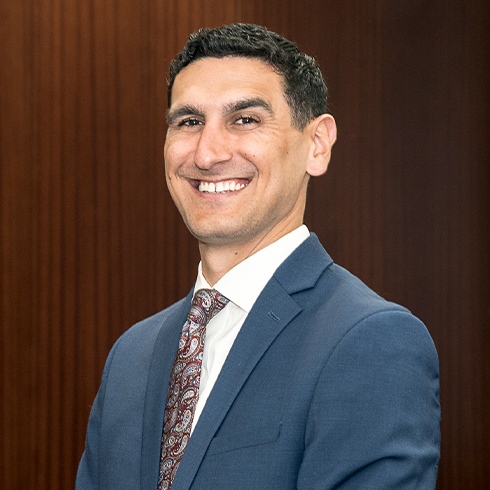You need a medical malpractice lawyer that will help you WIN your case.
We will work tirelessly to help you WIN and get you full compensation for all your injuries.
Maryland Brachial Plexus Injury Lawyer
With Law Offices in Lanham, Waldorf, Frederick, Lexington Park, Rockville, and Annapolis
Do You Need Legal Help?
Client Testimonials
The Opinions that Matter Most“After being rear-ended by a distracted driver, I was injured, my truck was totaled, and for the first time in my life - I needed a lawyer. My attorney, Chris Murphy, was diligent, personable, and fought for me every step of the way. And what matters most… WE WON! I strongly recommend contacting this firm.”
- C Blue
“Amazing firm. Went above and beyond in making me feel welcomed, informed, and at ease considering the serious reasons for me being there. It was my first time dealing with something like this and it was comforting knowing I had a whole team behind me working to get the best outcome possible which they did. Highly recommend this firm to anyone looking for a good reliable lawyer who will work with you and be considerate of your well being.”
- Daniel Torres
“I cannot say enough good things about this firm. Everyone has been so helpful, I was always included in everything and never left in the dark. The staff is always on top of it and respond back within minutes. I would absolutely recommend this firm to anyone in need! Made my life so much easier with great outcomes!”
- Sheeba
Advocating for Injured Families in Maryland and DC
When the nerves in the shoulder (the brachial plexus) are damaged, the resulting injury could last weeks, months, or a lifetime. If the nerves were torn, surgery may be required. In some severe cases, brachial plexus palsy, or Erb’s palsy, may develop.
Has your child suffered a brachial plexus injury during labor and delivery? Do you have reason to believe a negligent health care professional was to blame? Have you been left to pay the consequences?
Our brachial plexus injury lawyers are here to help.
At Alpert Schreyer, LLC, we take on negligent health care professionals and hospitals for causing serious injury to mothers and their children. We have remained committed to fighting for the victims of negligence, amplifying their voices for over 30 years. What’s more, we work on contingency fees—that means you won’t pay a dime unless we win your case!
Contact us online to get your free, confidential consultation with a Maryland brachial plexus injury lawyer. We also represent clients in Washington, DC.
Symptoms and Causes of Brachial Plexus Injury
If your baby was born with the following symptoms, it is likely that he or she suffered a brachial plexus injury:
- Numbness in the arm
- Weak grip
- A bent or limp arm
- Lack of movement of the arm
The most common cause of brachial plexus injury is shoulder dystocia, a condition in which the baby’s shoulder gets stuck behind the mother’s pelvic bone.
If a health care provider does not identify or properly handle shoulder dystocia, the brachial plexus can easily be stretched, torn, or ruptured, as they attempt to pull your baby through the birth canal. Failing to monitor fetal distress or a prolonged labor (two outcomes of shoulder dystocia) can easily result in brachial plexus injury, especially when an emergency cesarean section (C-section) is delayed.
Using forceps and/or vacuum extraction for too long can also lead to brachial plexus injury, whether or not shoulder dystocia has occurred. These medical tools should only be used sparingly—and never one after another. Using one method for too long or both during the same birth can lead to the baby (and their shoulder) being pulled too forcefully through the birth canal.
A breech birth, high birth weight, twins and triplets, and high gestational weight are common risk factors for this type of injury.
When Can You Sue for a Brachial Plexus Injury?
Anyone who has suffered injury because of negligence on the part of a medical professional has the right to pursue compensation through a medical malpractice claim. When these claims involve injury during labor and delivery, they are also considered birth injury claims.
To prove a claim involving brachial plexus injury, those injured will need to show that:
- The health care provider owed a duty of care, meaning that a professional relationship existed between you and the negligent OB-GYN, nurse, midwife, doula, hospital, or other health care provider.
- The health care provider violated their professional duty of care, meaning that they acted against industry standards. As mentioned, this may mean they failed to address shoulder dystocia or order an emergency C-section. The violation can be either intentional or unintentional negligence.
- The violation caused the brachial plexus injury and damages, meaning that the injury was preventable and a direct result of the health care provider’s negligence. As for damages, this means that either the parent or the child (or both) suffered certain losses due to the injury.
A successful claim will result in compensation for the full amount of damages suffered. Common examples include:
- Hospital bills
- Neonatal intensive care unit (NICU) expenses
- Rehabilitation and therapy costs
- Loss of wages
- Loss of earning potential
- Cost of assistive devices
- Pain and suffering
Knowing whether a child’s brachial plexus injury was the result of medical negligence can be difficult to determine—and even harder to prove—on your own. Our brachial plexus injury attorneys are experienced with these types of cases and trained to investigate the facts of your case. We can help you find out whether negligence played a role and, if it did, help you file a claim for compensation.
Important Filing Deadlines
A child who suffered a brachial plexus injury has until their 21st birthday to file a claim, but it is recommended to get started sooner rather than later. Given that a minor cannot take legal action, the state allows parents to bring forth claims on behalf of their injured children immediately after the injury occurs. The deadlines for parents to file claims are much earlier. In most cases, a parent must file a claim within three years of their child’s injury.
Call 301-381-2655 to Get Your Free Consultation
Don’t let negligent physicians or other healthcare providers get away with injuring you, your child, or any other patients. Turn to Alpert Schreyer, LLC for experienced legal representation.
We offer our clients:
- No-cost, no-obligation case reviews
- 24/7 availability to answer questions
- Compassionate, personalized counsel
- Zero upfront legal fees
We have recovered millions of dollars for our injured clients. And for your convenience, we have offices across the state in Waldorf, Bowie, Frederick, Lexington Park, and Rockville.
Why wait? Give us a call today at 301-381-2655 to speak directly with a DC and Maryland brachial plexus injury attorney so we can get started on your case.
Client Reviews
![]()
Without hesitation, I strongly recommend this Law Firm on the manner in which they represented and worked with me to achieve a successful outcome with my Vehicular Injury Case. They were careful in outlining all the possible outcomes to me and did an exceptional job in listening to all my concerns.The Lawyer was extremely conscientious and the Court awarded the highest possible amount. I am truly grateful.
Antonette Patrick
Schedule Your Free Consultation
Our Experienced Personal Injury Team is Standing By

















